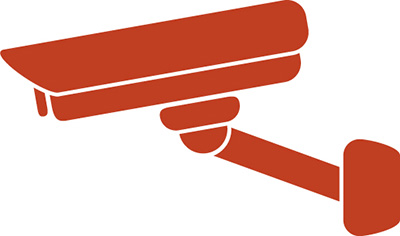Where the law stands on workplace surveillance
Our legal advisers on what you need to know about employee surveillance and social media snooping.

The development of digital recording technology and the prevalence of smartphones means both employers and employees are increasingly using surveillance footage in the workplace.
Generally, employers use CCTV to record the activities of staff in the workplace, but in some cases they may monitor employees externally. Meanwhile, employees are increasingly – and often covertly – using smartphones to record meetings with managers or conversations with colleagues. These developments present challenges for workers and managers alike, so it’s important to properly understand the law in this area.
Social media
Widespread use of social media inevitably means that what would previously have been private conversations are now posted online, often for all – including employers – to see. Workers have been dismissed for using social media at work or because of content they have posted online outside working hours. But in our experience, many employees are still ignorant of the risks involved.
The Employment Practice Data Protection Code says that employers must show there is a good reason for monitoring employees’ social media activity and consider other less intrusive ways of achieving their goals. They must also ensure workers know they are being monitored and why.
Section 7 of the Human Rights Act states that public sector employers must adhere to Article 8 of the European Convention on Human Rights, which provides an individual with a right to respect for his or her private life, and to Article 10, which provides a right to freedom of expression.
Although these give workers a legal recourse, they can also support an employer’s case. An employer may be permitted to monitor their employees’ social media activity if they can justify it as being in the interests of protecting the health, morals or rights and freedoms of others. They may argue that comments by employees have infringed the rights and freedoms of others by damaging the employer’s reputation, or that comments about colleagues, for example, amount to harassment.
Using social networking sites at work may be a breach of the employer’s internal policy. However, where there is no policy, disciplinary action – including dismissal – may be unreasonable.
Covert recordings
The use of secret recordings by employers is difficult to justify, except in exceptional circumstances and when authorised by senior management. Covert monitoring could be used, for example, for the prevention or detection of a crime. The Employment Code states that it should form part of a specific investigation and should never be used in areas that workers would genuinely and reasonably expect to be private.
One case involved an employee who was recorded playing squash when he should have been at work. An appeal tribunal held that the employee did not have a reasonable expectation of privacy, as he was in a public place, playing squash in his employer’s time – which amounted to him being, fraudulently, engaged in his own business while being paid by his employer.
Generally, if an employee has secretly recorded an internal meeting or hearing with the employer, a tribunal will consider whether the evidence is relevant, but only if the employee was present when the recording was made and a transcript has been provided to the tribunal.
Covert recordings of the employer’s private discussions will not usually be admissible if the employee was not present when the recording was made. However, the balance of public interest between preserving the confidentiality of private discussions and admitting relevant evidence could be adjusted if, for example, the case relates to allegations of discrimination and the recording is the only evidence of this.
Employees should also ensure they are familiar with their terms and conditions of employment and their employer’s policies, as the recording of disciplinary meetings may expressly be prohibited. If an unauthorised recording came to light, it may be deemed to be an act of misconduct. Even if the issue arises after the employee has been dismissed, the employer could still argue that the employee’s breach of contract means it is ‘just and equitable’ for a tribunal to reduce the amount of any compensation to be awarded for unfair dismissal.
Brian Wilson is an employment rights lawyer with Thompsons Solicitors. Legal Eye does not offer legal advice on individual cases. MiP members in need of personal advice should immediately contact their MiP rep or national officer.
Related News
-

Know your new legal rights at work
The government’s employment bill has been styled as the biggest upgrade to workers’ rights in a generation. Jo Seery explains what the new rights will mean in practice for MiP members.
-

Employment transfers: a brief guide to the law
With the NHS transfer window wide open again, Jo Seery from Thompsons Solicitors explains your rights if you have to move to a new employer.
-

Bye your leave: understanding settlement agreements
Settlement agreements are commonly used in the NHS to end a manager’s employment when there are no grounds for dismissal. Jo Seery explains how they work and how they can be enforced.